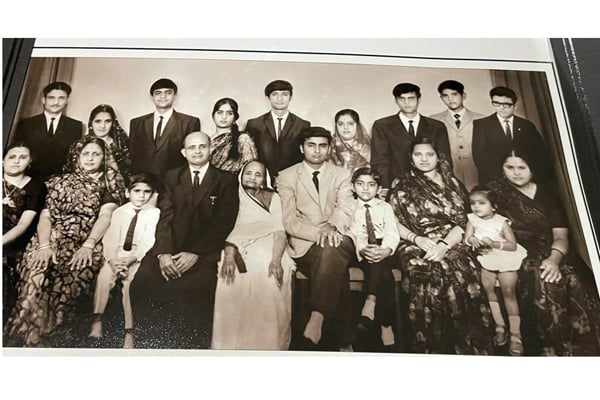Prime
President Amin quotes on expulsion of Asians

Fifty years ago, hundreds of Asians expelled by Idi Amin’s government flew out from Entebbe International Airport to seek new opportunities mainly in the United Kingdom and Canada.
What you need to know:
- Fifty years ago, hundreds of Asians expelled by Idi Amin’s government flew out from Entebbe International Airport to seek new opportunities mainly in the United Kingdom and Canada. In this 15th instalment of our series marking the golden jubilee of the expulsion, Faustin Mugabe compiles some of the remarks made by Amin in regards to the expulsion.
The decision to expel Ugandan Asians was announced on August 4, 1972 when Amin told all and sundry that he had a dream in which God had asked him to expel the Asians from Uganda. A lot of contemporary history seeks to narrow the decision to expel the Asians to a wild dream by Amin but as the foregoing narrative shows, the fundamental issues of a minority controlling the majority of the country’s economic surplus had been inherited at independence and had simmered for the 10 years since.
In his book, Soldiers as Traditionalisers, Prof Ali Mazrui places Amin’s dream in a philosophical text and gives it local context.
“Some of the Ugandans, particularly the intellectuals, might dispute the validity or authenticity of this or that particular dream claimed by Amin,” he wrote. “Perhaps the great majority would not dispute the proposition that some dreams are intended to be guides for action, and that supernatural forces might at times be in communication with a leader.”
Below are some of the statements Amin uttered in regard to the expulsion:
“I decided to expel the non-citizen Asians because they had no interest in Uganda. No country can continue to give abode to people who are running business on overdraft and banking all their money in foreign bank,” speech on television and radio Uganda, November 29, 1972. Reproduced in the East African Standard, November 30, 1972
“Mr Manubhai Madhavani was getting Shs600 million net every year out of his 30 square mile farm. For Mehta, nobody knows at the moment how much he was getting. Despite their wealth, neither man had taken out Ugandan citizenship. Surprisingly one would find about Shs16 (0.9 sterling) on their account in Uganda,” East African Standard, November 16, 1972
“These two tycoons [Muljibhai Madhvani and Mehendra Mehta sugar industrialists] for example holding 99 years leases of thousands of acres of land and on which they grew the sugar estates were paying the African owner of the land a minimum of two shillings per acre per year,” Speech on television and radio Uganda, November 29, 1972. Reproduced in the East African Standard, November 30, 1972
“Madhavani [Muljibhai] himself told me here after his release from prison that he was not a [sic] Uganda and wanted to apply for citizenship. Madhavani owned three passports from different countries,” Amin’s interview with the Nigerian Sunday News newspaper in Kampala, November 30, 1972.
“It was they, British, who 80 years ago removed those British Asians in their hundreds of thousands from their homes in the Indian sub-continent and brought [them] to East Africa to assist in the colonial administration and exploitation of the region. They dared not admit that it was they who during the colonial era deliberately erected a concrete political, economic and social barrier between the races and at the same time systematically keeping the African, the underdog in his own motherland and downtrodden by the European and Indian,” the East African Standard, December 19, 1972, Amin’s speech on television and radio Uganda.
“It was the British who at the time of Uganda’s independence fed the British Asians here on baseless propaganda and downright lies that encouraged the Asians generally to reject Africans and even their own origin Indian and Pakistani citizenship and to opt for British citizenship despite passionate appeals by African and Asian leaders. The late Pandit Nehru, for a long time prime minister of India, persistently called upon his erstwhile country men to take up local citizenship and identify themselves with the indigenous people but his appeals fell on deaf ears,” the East African Standard, December 19, 1972, address to the nation on television and Radio Uganda.
“Any person of India, Pakistan or Bangladesh origin, extraction or descent who might not be a citizen of Britain, India, Pakistan or Bangladesh, but has acquired another [sic] citizen from Kenya, Tanzania, Zambia, Zaire or any other country in the world must leave Uganda on or before November 8, 1972,” Voice of Uganda newspaper, October 26, 1972.
“My government decided to take immediate and decisive measures to ensure that the people of Uganda truly reap the fruits of political independence, which can only be attained by ensuring that the economy of the country is actually controlled by citizens,” Voice of Uganda newspaper, October 7, 1972.
“The non-citizens [Asians] were [sic] encourage almost to the point of being begged to take up citizenships so as to identify themselves truly and completely with the country’s independence aspirations,” Voice of Uganda newspaper, October 7, 1972.
“I am busy commanding the Uganda armed forces as there is a threat of an invasion of Uganda by Britain, Indian, Tanzania, Rwanda and two other countries. I have documented evidence. It is not my intention or that of the government to maltreat or otherwise oppress any non-citizen Asians who may have failed to meet the deadline. I am a human being also, and I do not want to see unnecessary human suffering. I should be glad if you would use your good offices to persuade the governments of Britain, India, Pakistan and Bangladesh to expedite the uplift operations which so far has been rather slow,” the East African Standard newspaper extracted this President Idi Amin address to the UN Secretary General, Dr Kurt Waldneim, which was aired on and radio Uganda on October 3, 1972.
“The expulsion of non-Ugandan Asians from Uganda was merely the first battle in the war we have declared. We have now won the battle and must embark upon the next battle which will be for all people in Uganda to have the will to overcome any temporary inconvenience that they may experience as an aftermath of the battle we have won today. At the same time, all people in Uganda, irrespective of their positions must pull together to fight the next battle in this war which is the physical control of our economy by ourselves,” Voice of Uganda newspaper, November 7, 1972
“The bomb did explode in 1962 when we attained independence, but only partly. We know that although we attained independence, we have generally taken the political decision, the economic decisions affecting the life and destiny of our country were not ours. Because the economy remained in the hands of foreigners whose only interest in Uganda were the financial benefits they derived from the country coupled with its perennial sunshine, the indigenous Ugandan really remained an economic slave in his own country,” the East African Standard, December 19, 1972.
“The British Asian with millions could bribe his way to the highest levels and had through his money a big say in the political decisions of the country. The government of the Second Republic under my leadership is determined to change all this. We are determined to make the ordinary Uganda a master of his own destiny; and above all to see that he enjoys the wealth of his country,” the East African Standard, December 19, 1972
“Our deliberate policy is to transfer the economic control of Uganda into the hands of Ugandans for the first time in the history of our country. This we shall do despite threats and blackmail or perhaps more correctly whitemail, from powers that be. When our future generations look back in history decades or hundreds of years to 1972/1973, if they do not remember us for any other thing, they will at least remember us for having given Uganda her economic independence,” the East African Standard, December 19, 1972.
Background
Amin
President Idi Amin came to power on January 25, 1971 after overthrowing then president Milton Obote. He ruled as a military dictator and is considered one of the most brutal despots in modern world history.
Amin was later overthrown with the help of the Tanzanian army. He was forced to flee the country. Amin died in exile at a hospital in Jeddah on August 16, 2003. He was buried in Ruwais Cemetery in Jeddah, Saudi Arabia.




